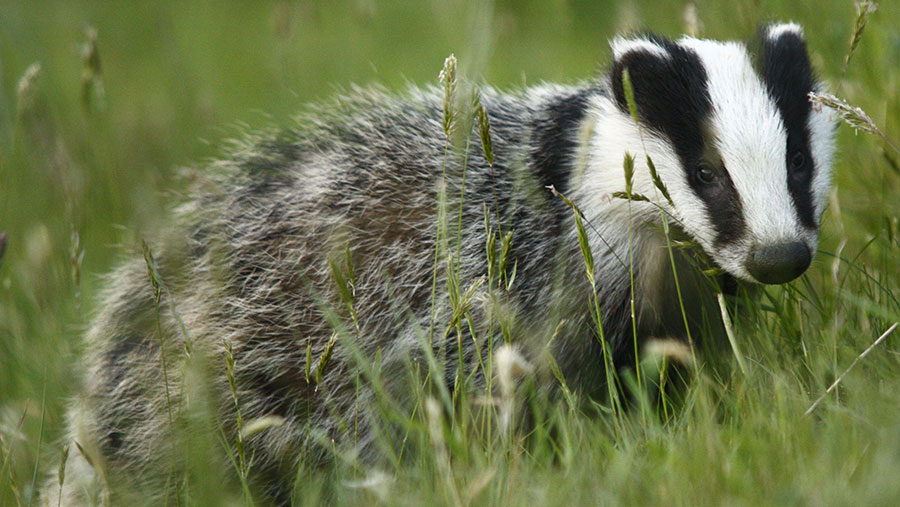‘Supplementary’ badger culling resumes in Somerset and Glos
 © FLPA/REX/Shutterstock
© FLPA/REX/Shutterstock Culling of badgers in parts of Somerset and Gloucestershire is set to resume under the government’s new “supplementary” control programme, intended to prevent any recovery in badger numbers in areas where licensed culling has already operated for four years.
Letters have been sent by Natural England to licensed badger control groups in these two areas confirming the start date for culling to resume, and specifying the minimum and maximum number of badgers that may be killed during each open season.
See also: Farmer groups gear up for extended badger cull
For the Gloucestershire control area, this is between 160 and 580 badgers, and for the Somerset control area between 140 and 610 badgers.
Operations in these areas will be carried out under five-year licences, which allow culling to take place between 1 June and 31 January every year to 2022.
Culling may involve live trapping and dispatch up to 30 November, or open shooting with a rifle up to 31 January.
“Natural England will keep under review all available evidence as to the level of the population and will monitor the culling operations,” said the letter.
“It will, if appropriate, provide further advice on the level of culling effort and badger removal required to achieve an effective cull.”
Control benefits
Defra announced in late July that it was planning to operate the supplementary cull, in order to “prolong the expected disease control benefits” of removing badgers in bovine TB hotspots.
The move has been welcomed by farmer groups, who see culling as an essential part of the overall strategy to contain bovine TB, which has seen nearly 40,000 cattle slaughtered over the past 12 months, costing taxpayers an estimated £100m in compensation to farmers.
But badger protection group the Save Me Trust said it was “profoundly saddened” by the new supplementary badger control licences.
It claimed research has consistently shown the culling policy to be ineffective.
“In the light of current knowledge, the government’s decision to press on with a policy which is already failing, while costing the taxpayer millions of pounds in wasted effort, is extraordinary,” said a spokesman.
But farmers are convinced the policy is working, pointing to anecdotal evidence of a reduction in bovine TB in badger cull areas.
